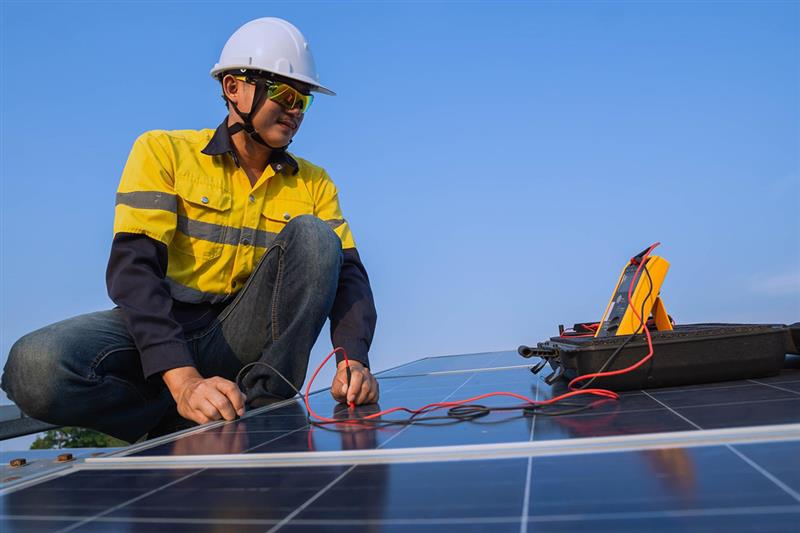Introduction
The shift to solar energy in India is gaining momentum. Falling prices, government incentives and a growing awareness about clean energy have encouraged homeowners and businesses to adopt solar power. But before you install those shiny panels on your rooftop, there’s one aspect you can’t ignore - GST rules for solar panels.
From the moment you purchase solar equipment to the final installation, understanding how GST applies at each stage can save you from unpleasant surprises. It’s not just about how much tax you pay, but also whether you can claim any benefits. Let’s break it all down in simple, easy-to-understand terms.
The Recent GST Changes: What You Need to Know
The GST Council has made significant changes in recent years to encourage renewable energy adoption. One of the biggest moves was reducing the GST on solar panels and other key components to 5%.
Earlier, many parts of a solar system attracted 12% GST, which pushed up the cost of going solar. With the reduction to 5%, installing a solar system has become far more affordable, benefiting homeowners, businesses and even large-scale solar developers.
But the tax rules go deeper than just panels - inverters, batteries, mounting structures, and services like installation all fall under different GST rates. That’s where it gets a bit tricky.
GST on Solar Components: The Basics
When you buy solar equipment, GST applies differently depending on what you’re buying and whether it comes as a bundled package or individual items.
- Solar panels and inverters: Most now fall under the 5% GST slab if sold as part of a solar power system. This reduction makes a big difference because these items account for most of the cost.
- Batteries: If you’re adding batteries for energy storage, be aware that many types still attract a higher GST, sometimes up to 18%.
- Mounting structures, wiring and accessories: If you buy these separately, rather than as part of a full system package, they may also be taxed at a higher rate, often 18%.
So, if you want the maximum benefit of lower GST, it often makes sense to buy the entire solar system as one bundled package rather than separate items.
The EPC Model and Composite Supply
Most solar installations in India now happen through what’s known as an EPC contract - Engineering, Procurement and Construction. This means you pay one company to supply everything, install it and hand over a working system.
Under GST, this is treated as a composite supply:
- The goods portion (panels, inverters, etc.) usually attracts 5% GST.
- The services portion (installation, labor, civil work) often attracts 18% GST.
To make it simple, the government often applies a 70:30 rule - 70% of the contract value is taxed as goods and 30% as services. This ensures you don’t get charged 18% on the full amount when most of the cost is actually goods taxed at 5%.
GST on Installation Services
If you only hire someone for installation after buying the panels separately, the service portion alone can attract 18% GST.
This is why many homeowners prefer to sign a single EPC contract - it simplifies billing, keeps costs transparent, and ensures you benefit from the reduced tax on goods.
Input Tax Credit: Who Can Claim It?
One question many people ask is whether they can claim Input Tax Credit (ITC) on the GST paid for solar installations.
- If you’re installing solar for personal residential use, the GST you pay is final - there’s no ITC benefit.
- If you’re a business or commercial establishment with GST registration, you may be eligible to claim ITC on the GST paid for solar, reducing your overall tax liability.
However, there have been rulings where solar plants considered “immovable property” did not qualify for ITC. So, it’s always best to consult a tax professional for larger installations.
Why Understanding GST Matters
Many homeowners and businesses focus only on the upfront price when going solar. But GST rules directly affect your total cost of ownership. Misunderstanding the tax treatment can lead to higher bills than expected or missed opportunities to claim benefits.
A few simple steps can save you trouble later:
- Always ask your installer for a clear cost breakup - goods vs services.
- Check whether your contract qualifies for the 5% GST rate on panels and inverters.
- If you’re a business, confirm ITC eligibility before making payments
The Road Ahead
The good news is that the government’s direction is clear: they want to make solar adoption easier and cheaper. Lower GST rates are part of this strategy and we might see more incentives in the future as India pushes toward its renewable energy targets for 2030.
For homeowners, the focus should be on finding reputable installers, signing transparent contracts and understanding the full financial picture - GST included.
For businesses, solar power is not just an environmental choice but a financial one and understanding tax implications is key to maximizing returns.
Conclusion
From purchase to installation, GST rules for solar panels may seem complex at first glance, but the big picture is simple:
- Panels and inverters now attract only 5% GST when sold as part of a system.
- Services like installation often fall under 18% GST, but bundled contracts help balance this out.
- Residential users can’t claim tax credits, but commercial establishments may benefit from ITC depending on project structure.
As India embraces solar energy, knowing how taxes apply ensures your investment is smart, transparent and future-ready. When in doubt, always ask your installer for a detailed cost breakup so you can plan better and make the most of government benefits.


